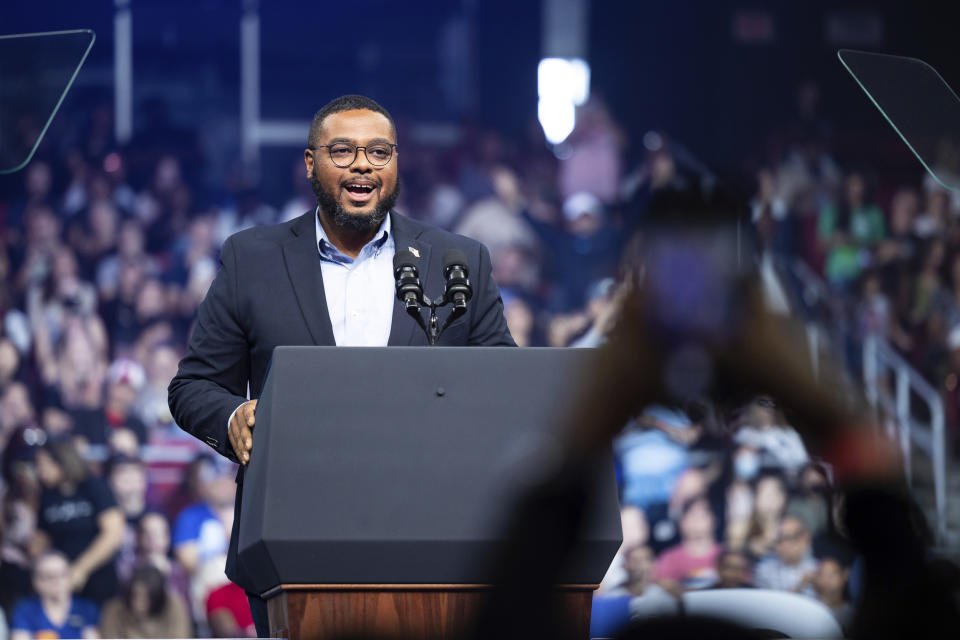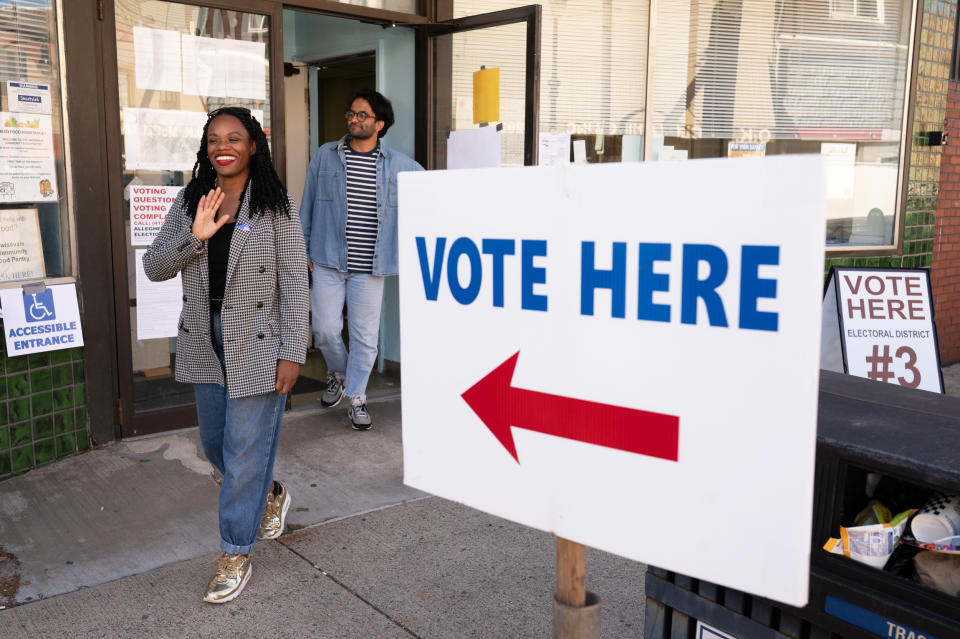Here are the Black candidates who made history on election night
A record number of Black candidates from major parties ran for high office in this year’s midterm elections. While it’s still too soon to determine which party will control the House and the Senate, some states are already celebrating Black historic wins for jobs from governor to secretary of state.
“There’s an electorate, Black people are the center of it, who are understanding our political power,” said DaMareo Cooper, a co-executive director of the Center for Popular Democracy, a progressive advocacy group. “People are thinking about how their voice, and people who come from our community, should be the representatives and deciders for the type of society we want to develop that’s inclusive for everybody.”
The midterms brought a pair of historic victories in Maryland. The first was by Democrat Wes Moore, who beat Republican Dan Cox to become Maryland’s first Black governor and only the third Black governor in the country. Second, the state gained its first Black attorney general, Democratic U.S. Rep. Anthony Brown, who defeated far-right Republican Michael Peroutka.
“It is not lost on me that I’ve made some history here tonight, too. But I also know I’m not the first one to try,” Moore tweeted late Tuesday. “This is just more proof that progress is possible in Maryland. And I am humbled to be a part of this legacy.”

In Pennsylvania, all eyes were on the high-voltage Senate battle between Lt. Gov. John Fetterman and celebrity TV doctor Mehmet Oz, but history was being made in another key contest: the race for lieutenant governor. Democrat Austin Davis is projected to be the state’s first Black lieutenant governor. Democrat Josh Shapiro, the state attorney general, who NBC projects will win the governor’s race, endorsed Davis.
Black female candidates hoped to make history across gender and racial lines in several states, from Rep. Val Demings and Aramis Ayala in Florida to Chelsea Clark in Ohio and several women bidding to be the country’s first Black female governor. Although many of the races ended in losses for the Black female Democratic candidates, some states have ushered in new progressive representation.
Democrat Summer Lee, who won in Pennsylvania’s 12th Congressional District, is the first Black woman elected to Congress from the state. Her Republican opponent, Mike Doyle, conceded late Tuesday, according to the Pittsburgh Post-Gazette.

In Connecticut, voters secured the state’s first Black secretary of state in Democrat Stephanie Thomas. After years of working with nonprofit organizations, Thomas focused her campaign against Republican Dominic Rapini on combating voter suppression and false claims of voter fraud. And in Massachusetts, Democrat Andrea Campbell beat out Republican Jay McMahon to become the state’s first Black female attorney general.
“Let’s give credit where credit is due,” said Aimee Allison, the founder of the voter advocacy group She the People. “What we just saw in the midterms is that these Black women were able to inspire multiracial coalitions that enabled their wins. Exit polling is showing that women of color helped make that happen.”
Along with making strides in representation, voters in a handful of states weighed in on ballot initiatives that would disproportionately affect Black people, one being the exceptions to slavery in state constitutions. Voters in Tennessee, Alabama, Oregon and elsewhere approved ballot measures to eliminate slavery and involuntary servitude as punishment for crime, according to The Associated Press. However, more than dozen state constitutions still permit some measure of slavery and involuntary servitude for prisoners, while several others have no constitutional language about the matter at all, according to The AP.
“Now it is time for all Americans to come together and say that it must be struck from the U.S. Constitution,” Sen. Jeff Merkley, D-Ore., told The AP. “There should be no exceptions to a ban on slavery.”
This article was originally published on NBCNews.com

